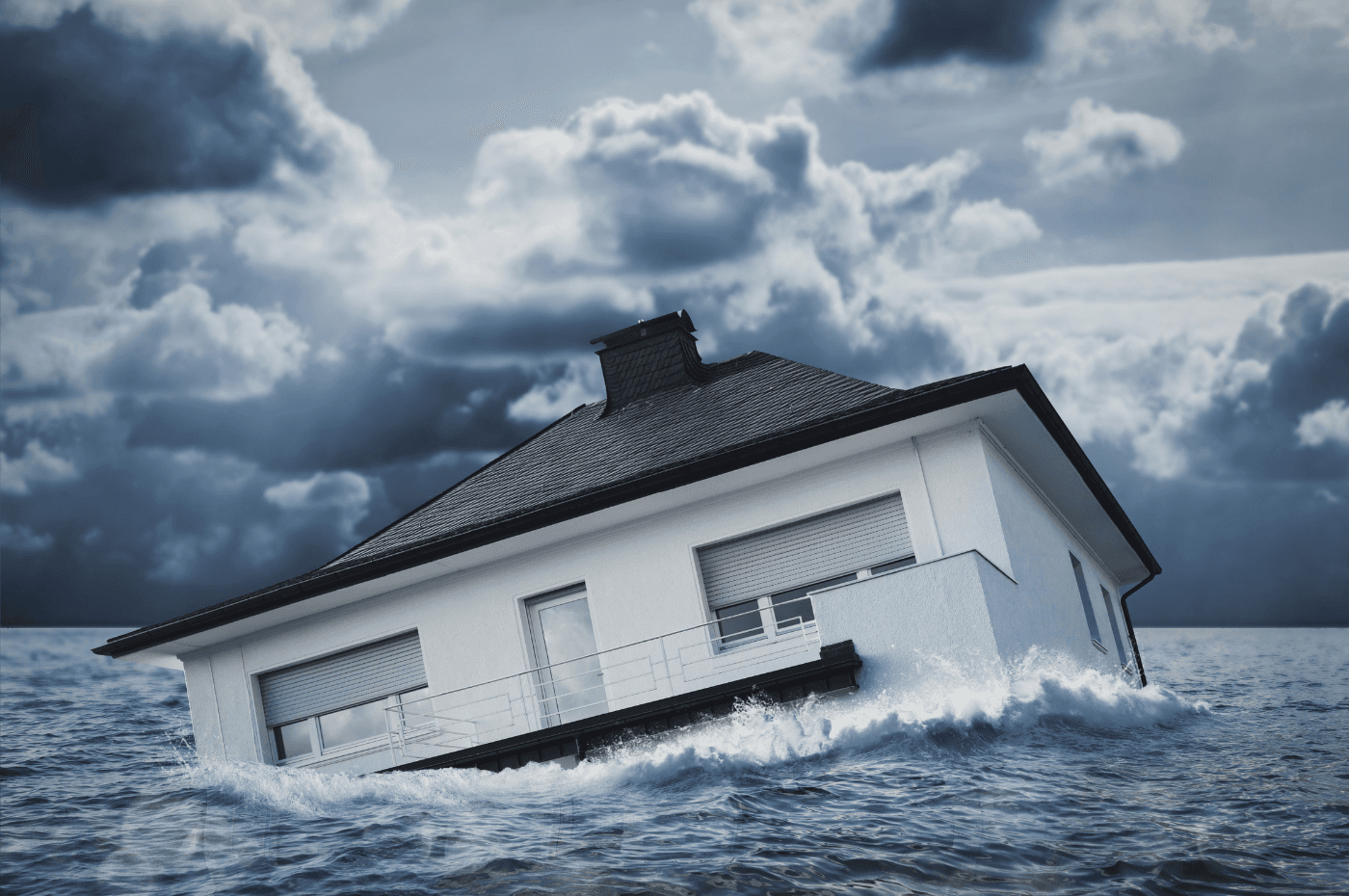Have you found your dream property? Is it located on the waterfront? Keep in mind that it could also be in a flood zone, which adds the risk of potential disasters. This is important information that should not be taken lightly!
What are the risks of purchasing a home in a flood zone? How can you determine if the property is in a high-risk area? Will you be able to secure adequate insurance for the home? This article will provide the answers to these questions, helping you make a well-informed decision.
What is a flood zone?
A flood zone is a designated area that is at risk of being inundated by water from a river, lake, or other bodies of water when water levels rise during a flood. This rise in water levels, and the flooding that follows, can be triggered by heavy rainfall, spring floods, or melting ice, often occurring in the spring.
It's important to note that not all flood zones have the same level of risk. Some areas are more prone to flooding than others.
Designation of flood zones
In response to the increasing concerns about flooding in recent years, the Quebec government has launched a project to modernize the regulatory framework for flood-risk zones. This initiative is led by the Ministry of the Environment, the Fight Against Climate Change, Wildlife, and Parks of Quebec.
As part of this modernization, several changes have been made, particularly in the terminology used to classify these flood zones.
Low-risk area (20-100 years) vs. high-risk area (0-20 years)
Under the old system, flood zones were divided into two categories: low-risk areas and high-risk areas.
- A low-risk area (or 20-100-year recurrence zone) was a location with a relatively low chance of flooding. It had a 1% risk of flooding each year, meaning floods were infrequent but still possible. In practice, however, these areas could experience flooding for several consecutive years, followed by long periods without any floods.
- A high-risk area (or 0-20-year recurrence zone) had a higher likelihood of flooding, with a 5% chance (1 in 20) of flooding each year. Floods occurred more frequently in these areas than in low-risk areas.
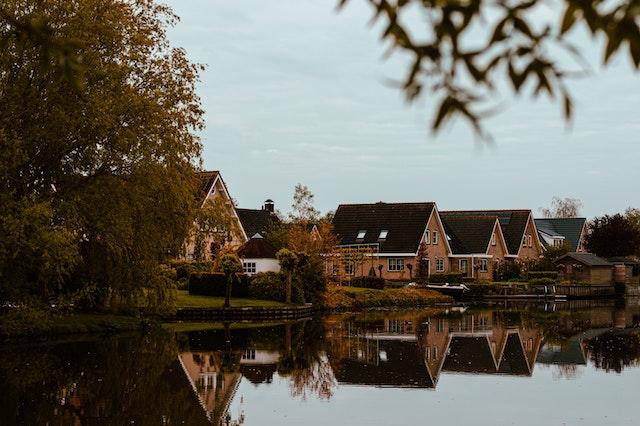
New risk level designation
The updated flood zone classification system now includes four categories, each represented by a colour code:
-
Yellow: Low-risk zone
-
Orange: Moderate-risk zone
-
Red: High-risk zone
-
Dark Red: Very high-risk zone
This new system considers factors such as the frequency of flooding, the potential intensity of floods, and the water depth in the area, offering a more precise assessment of the actual risk.
How to know if a house is in a flood zone?
Now that you're familiar with flood zones, how can you find out if the house you're interested in or the property you're considering purchasing is in a flood-risk area? You can check several sources to verify:
1. The seller’s declaration
If you're in the process of purchasing a property, it's crucial to carefully review the seller's declaration. When a property is being sold through a real estate agent, the seller is legally required to complete this document.
The seller's declaration must include all information that could impact the value of the property. This includes any history of flooding. If the house has been flooded in the past, the seller is obligated to disclose this information.
2. The location certificate
The location certificate is a crucial document in any real estate transaction in Quebec. It is especially important for properties near water, as it will indicate whether the property was identified as being in a flood risk zone at the time the certificate was issued.
However, make sure to consult an up-to-date location certificate. If the certificate was prepared by a land surveyor several years ago, be aware that flood zone maps, zoning regulations, or municipal rules may have changed since then.
If needed, you can also hire a land surveyor to assess whether your property is in a flood risk zone, even if you don't request a new certificate.
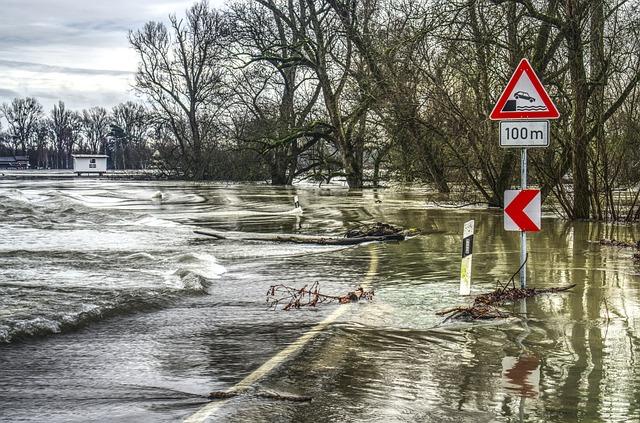
3. Geo-Floods: the flood zone map of Quebec
To learn about flood zones in Quebec, you can also consult the interactive map provided by the Ministry of the Environment, available for free online.
If you're thinking of purchasing a property near a watercourse, be sure to check this map. It will help you make an informed decision.
What are the risks of buying property in a flood zone?
While owning a home by the water is a dream for many, buying property in a flood zone comes with several significant risks that must be carefully considered. After all, real estate is often one of the largest investments of a lifetime.
So, what are these risks? Here's an overview.
Your belongings could be damage
Consider everything you have at home: furniture, appliances, electronics, decorative items... In the event of a flood, all of these could be submerged and damaged beyond repair.
The cost of these damages could quickly run into the thousands of dollars. Would you be able to replace everything if your insurance doesn't cover the losses? And beyond the material value, think about all the personal belongings and memories that could be lost; many of which are irreplaceable.
Your basement could be flooded
In addition to damaging your furniture and possessions, the structure of your home itself could also be at risk. During floods, homeowners often face significant water accumulation, particularly in the basement.
The potential for damage is high, especially if the water isn’t addressed and dried out quickly. Aside from the costly repairs, your home could even become uninhabitable.
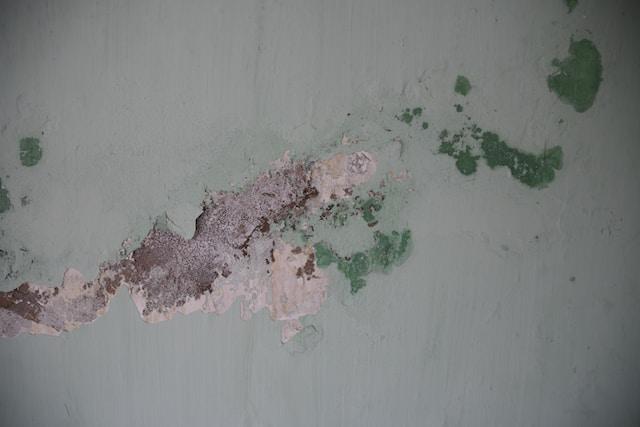
You could have humidity and mould problems
Even if the situation is handled quickly, water can leave lasting effects in your home. The lingering moisture can lead to humidity and mould issues, which are often difficult to fully eliminate.
Your house could lose value when selling
If you decide to sell your waterfront property, its value could drop if it's located in a flood zone or has been previously flooded. This is a deterrent for many buyers, who may hesitate to pay full price for a property that could incur high maintenance and repair costs in the future.
Is it possible to insure a house in a flood zone?
Owning a home in a flood zone comes with higher disaster risks, so securing home insurance is essential for protection. But will insurance companies be willing to offer coverage?
Your property can still be insured for other types of risks, even if it's in a flood-prone area. You'll retain the protections specified in your policy, such as coverage for theft, fire, or vandalism.
However, when it comes to adding flood coverage, your insurer may refuse your request due to the flood risk associated with your property.
To get more clarity, reach out to your insurance broker for details. You can also compare offers from different insurers to see if any are willing to cover your property.
Will your insurance premium increase?
Due to the higher flood risk associated with your property, it's possible that the cost of your insurance premium will be higher if an insurer agrees to cover you. This could apply even if you opt for basic coverage.
To find the best deal, it’s a good idea to compare offers from multiple insurance companies to see which one offers the most suitable coverage for your needs.
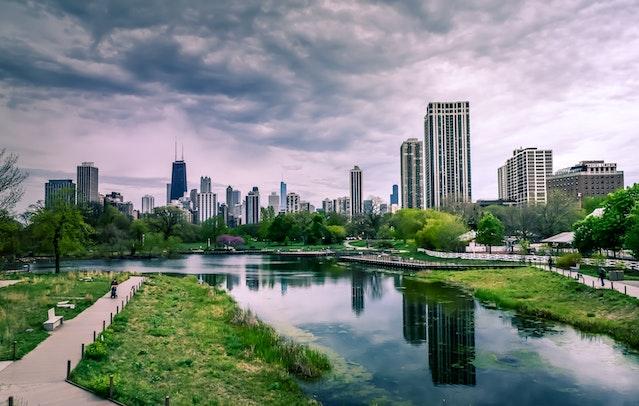
Can you build a new house in a flood zone?
In high-risk flood zones (0-20 years), construction, works, or projects are generally prohibited. However, some exceptions may apply.
In low-risk flood zones (20-100 years), certain types of construction may be allowed, provided they comply with current flood mitigation measures.
However, enforcement of these rules is the responsibility of municipalities, and they may grant exceptions, allowing construction in certain flood-prone areas under specific conditions.
As for the new regulations, there has been no specific information provided yet regarding construction in these areas.
What is flood mitigation?
Flood mitigation refers to the implementation of protective measures designed to prevent flooding from damaging structures located in risk zones.
These mitigation measures can vary depending on the property and the area. It’s a good idea to check with your municipality for more detailed information about the specific measures that may apply to your property.
Can you rebuild a property in a flood risk zone?
If your property were to be destroyed, could you rebuild it in the same location if it's in a flood zone? Unfortunately, the answer may be no.
In a 0-20 year zone, rebuilding was generally not allowed. Under the new regulations, this will remain prohibited in very high-risk areas.
In the 20-100 year zones, rebuilding was typically allowed, and this will continue in low- and moderate-risk zones. However, any rebuilding must comply with the current regulations and flood mitigation measures.
Can you repair a property in a flood zone?
If the building has lost less than 50% of its value due to flooding, repairs are generally allowed in both high-risk and low-risk zones.
However, if the building has lost more than 50% of its value, the rules are the same as for rebuilding, meaning major repairs may not be permitted, particularly in very high-risk areas.
You want to buy a waterfront property?
XpertSource.com can help you find a real estate broker. When you tell us about your project, we put you in touch with qualified resources for free. Simply fill out our form (it only takes a few minutes) and we will connect you with professionals.
